Building a custom home is one of the biggest investments you’ll ever make — both financially and emotionally. Every design detail reflects your personal taste and lifestyle. But turning that dream into reality depends on one key decision: choosing the right custom builder.
A skilled and trustworthy builder can make your project enjoyable and stress-free. A poor choice, however, can lead to delays, budget blowouts, and endless frustration. In this guide, we’ll walk through the essential steps for selecting a builder, understanding the builder selection criteria, and evaluating which one is the best fit for your vision.
Why the Right Builder Matters
Your builder is more than just a contractor — they’re your partner throughout the entire construction process. From concept to completion, they’ll manage timelines, budgets, suppliers, and trades. Choosing carefully ensures:
- Quality workmanship and durable results
- Transparent pricing and communication
- Efficient project management
- A smooth experience from start to finish
Finding someone who shares your values, listens to your needs, and delivers what they promise is essential for your peace of mind and your home’s quality.
Step 1: Define Your Project Goals and Budget
Before meeting any builders, take the time to clarify what you want.
Ask yourself:
- What type of home am I building — contemporary, coastal, traditional, or luxury?
- How big is the project?
- What’s my budget range?
Having a clear home building budget helps narrow your search to builders experienced in your preferred style and price bracket. This also ensures you receive more accurate cost estimates from the start.
Step 2: Research and Shortlist Local Builders
Start by gathering a list of custom builders in your area. Look for companies with strong reputations and portfolios that align with your design vision. You can:
- Search online for “custom home builders near me”
- Check social media pages and Google reviews
- Visit display homes or completed projects
- Ask friends, family, or architects for recommendations
Once you’ve compiled a list, narrow it down to three or four builders for deeper evaluation.
Step 3: Evaluate Experience and Specialisation
Not all builders are created equal. Some specialise in luxury homes, others in sustainable builds or modern extensions. When evaluating builders, review their portfolio and experience.
Key things to check include:
- How many years they’ve been in business
- The types of homes they typically build
- Whether they have experience with similar block types (e.g., sloping, narrow, or coastal)
An experienced builder understands potential challenges early and can offer creative, cost-effective solutions.
Step 4: Review Builder Credentials and Licences
Before signing any contract, ensure your builder holds valid licences and insurance. In Victoria, all builders must be registered with the Victorian Building Authority (VBA).
Confirm that they:
- Hold a Domestic Builder Unlimited (DB-U) licence
- Provide home warranty insurance for projects over $16,000
- Follow the National Construction Code (NCC) and local building standards
Checking credentials protects you from unqualified operators and ensures legal compliance throughout construction.
Step 5: Ask the Right Questions
When meeting potential builders, come prepared with a list of questions that help reveal their professionalism and compatibility.
Consider asking:
- How do you handle project delays or unexpected costs?
- Who will manage the site day-to-day?
- Can you provide references from recent clients?
- How do you manage subcontractors and quality control?
- What’s your average build time?
These questions reveal how transparent and communicative your builder is — key traits in any successful building relationship.
Step 6: Check References and Past Projects
Don’t rely solely on online reviews. Ask your shortlisted builders for client references and visit a few of their completed projects. Seeing their work firsthand gives you a real sense of craftsmanship and finish quality.
When speaking to past clients, ask about:
- Their experience during the build
- How well the builder managed communication and changes
- Whether the final cost matched the quote
- How responsive the builder was after completion
This feedback offers valuable insights into the builder’s reliability and customer service.
Step 7: Assess Transparency and Communication
Clear communication builds trust. A good builder will be upfront about timelines, materials, and potential risks. They should provide detailed cost estimates and explain how variations are managed.
Avoid builders who give vague answers, rush discussions, or avoid specifics about contracts and inclusions. Transparency is a strong sign of professionalism.
Step 8: Compare Quotes — Don’t Just Pick the Cheapest
It’s tempting to choose the lowest quote, but price alone shouldn’t decide your builder. Compare quotes carefully and review the inclusions list.
Some builders may offer a low upfront quote but exclude key items like landscaping, fixtures, or site costs. Others may price higher but include everything — saving you money later.
When choosing the right builder, focus on overall value, not just initial pricing.
Step 9: Review Contracts Thoroughly
Before signing, read your building contract in full. Look for clear details about:
- Payment schedules
- Construction timeline
- Warranties and defects liability periods
- Variations policy
If you’re unsure, have a legal or construction professional review it with you. A transparent contract protects both parties and prevents misunderstandings during the build.
Step 10: Trust Your Instincts
Beyond experience and pricing, trust how you feel about each builder. Do they listen to your concerns? Are they patient and respectful? A builder who communicates well and genuinely cares about your project is worth their weight in gold.
Remember — you’ll be working with them for months, so a positive relationship matters just as much as the quote.
Builder Selection Criteria Checklist
When making your final decision, keep these builder selection criteria in mind:
- Valid licences and insurance
- Proven experience with similar projects
- Positive client references
- Transparent pricing and timelines
- Strong communication and organisation
- Professional attitude and responsiveness
Ticking these boxes ensures you’re partnering with a reliable, trustworthy professional.
Final Thoughts
Learning how to choose a custom builder is about more than comparing prices — it’s about evaluating builders based on experience, quality, transparency, and communication.
By following these steps, you can confidently select a builder who will turn your dream home into a lasting reality.
Take your time, ask the right questions, and remember: the best builder isn’t always the cheapest — it’s the one who truly understands your vision and delivers it with integrity.
Suggested Image Placements
- Builder shaking hands with clients on site (Alt: Choosing a custom builder Melbourne)
- Home under construction (Alt: Custom home building process)
- Completed custom home exterior (Alt: Custom-built house Melbourne)
Internal Linking Opportunities
- “Custom Home Cost Melbourne”
- “Home Builder Cost Melbourne”
- “Renovation Cost Melbourne”
- “House Extension Cost Melbourne”




